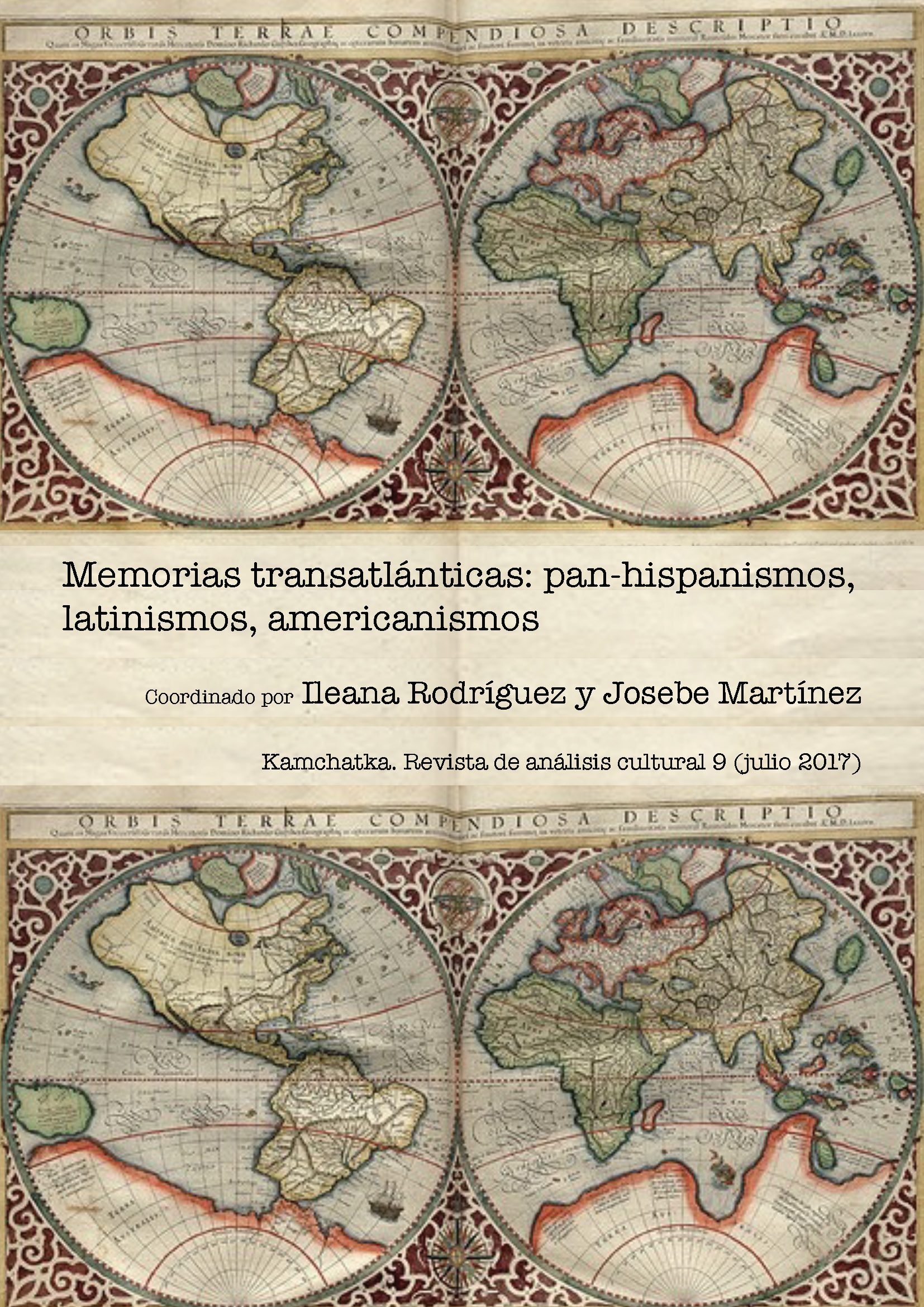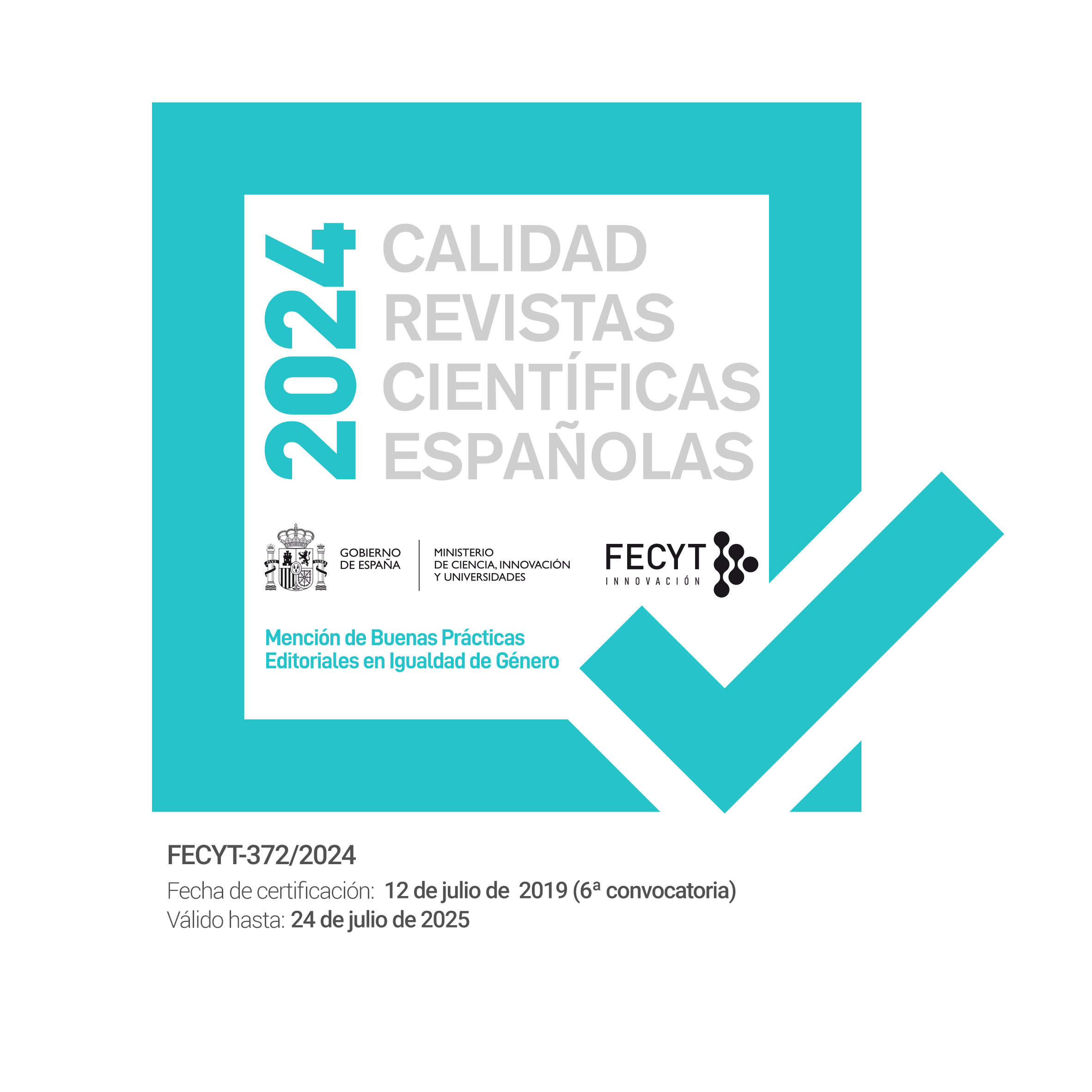Tango y Lunfardo: un estudio transatlántico sobre la identidad argentina / Tango and Lunfardo: a Transtlantic study about Argentinian Identity
DOI:
https://doi.org/10.7203/KAM.9.9547Palabras clave:
tango, identidad, transatlántico, poscolonial, inmigración, subalterno, lunfardo Resumen
Resumen
Resumen: Nacido en el arrabal bonaerense, producto de múltiples influencias socio-culturales, el tango argentino indudablemente se encuentra entre los estilos de música que mejor logran transmitir el pensamiento y el sentir de un pueblo. Este ensayo examina la función y el efecto de la experiencia transatlántica de la inmigración europea como una fuerza que moldeó y transformó la cultura fundacional argentina, redefiniendo no sólo su perfil racial, sino también gran parte de su panorama intelectual, social y cultural. Empleando como lente crítico los estudios poscoloniales y transatlánticos, el presente ensayo analiza la evolución de la música y del baile del tango con el fin de definir la compleja red de referentes que conforman la identidad del país.
Palabras clave: tango, identidad, transatlántico, poscolonial, inmigración, subalterno, lunfardo.
Abstract: Born in the slums of Buenos Aires, a product of multiple socio-cultural influences, the Argentine tango is undoubtedly among the music styles that best conveys the thought and the feeling of the people. This essay examines the role and effect of the transatlantic experience of Europan immigration as a force that shaped and transformed Argentina’s foundational culture, redefining not only its racial profile, but also much of its spiritural, social, and intellectual landscape. Through the critical lens of postcolonial and transatlantic studies, the current essay analizes the evolution of tango music and dance aiming to determine the complex network of referents that conform the country’s identity.
Keywords: tango, identity, transatlantic, postcolonial, immigration, subaltern, lunfardo.
 Descargas
Descargas
 Citas
Citas
Alberdi, Juan Bautista (2002). “Immigration as means of Progress”. The Argentina Reader: History, Culture, and Society. (Graciela Montaldo and Gabriela Nouzeilles, eds.) Durham: Duke University Press: 95-105.
Bhaba, Homi (1990). Nation and Culture. New York and London: Routledge.
Borges, Jorge L. (1999) “A History of the Tango.” Selected nonfictions/Jorge Luis Borges. (Eliot Weinberger, ed.) New York: Penguin Putman.
Castro, Donald S. (1991) The Argentine Tango as Social History 1880-1955: The Soul of the People. Lewiston: The Edwin Mellen Press.
Clemente, José E. (1968). “Estilística del lunfardo.” El lenguaje de Buenos Aires. Buenos Aires: Emecé Editores.
Collier, Simon (2002). “The Birth of Tango.” The Argentina Reader: History, Culture, and Society. (Montaldo y Nouzeilles, eds.): 196-202.
Farber, Mario E. “Historia: etimología de la voz Tango”. Gotán: Tango pasión argentina (27/08/2001).
Foster, David. W. (1998). Buenos Aires: Perspectives on the City and Cultural Production. Gainsville, FL: University Press of Florida.
Foster, David. W, Darrell y Melissa Lockhart (1998). Performing Arts: Culture and Customs of Argentina. Conn: Greenwood: 126-127.
García Canclini, Néstor (2001). Consumers and Citizens: Globalization and Multicultural Conflicts. Minneapolis: University of Minnesota Press.
James, Bruce (1953). Those Perplexing Argentines. Nueva York y Londres: Longmans, Green and Co. Inc.
King, John. “Victoria Ocampo, Sur, y el peronismo, 1946-1955”. Revista de Occidente 37 (1984): 31-44.
Manus, Carlos. “Tsunami Megata and the rise of tango in Japan”. Todo Tango: The Academy Chronicles.
Marinas, J. Alberto. “El tango, apunte histórico.” El tango 9/08/2012.
Masiello, Francine (1992). Between Civilization and Barbarism: Women, Nation & Literary Culture in Modern Argentina. Lincoln & London: University of Nebraska Press.
Montaldo Graciela and Gabriela Nouzeilles, (eds.) (2002). The Argentina Reader: History, Culture, and Society. Durham : Duke University Press.
Novión, Alberto (2002). La transición al grotesco criollo. Osvaldo Pellettieri, ed. Buenos Aires: Eudeba.
Placzkiewicz, Jezy (2012).”Tango in Poland, 1913-1939”. Todo Tango: The Academy Chronicles. 9/08/2012.
Sarup, Madan (1993). An Introductory Guide to Post-Structuralism and Postmodernism. Athens: The University of Georgia Press.
Savigliano, Marta E. (1995). Tango and the Political Economy of Passion. Boulder: Westview Press.
Tobin, Jeffrey (1998). “Tango and the Scandal of Homosocial Desire”. The Passion of Music and Dance Body, Gender and Sexuality, William Washbaugh (ed.). New York: Berg Publishing.
Washbaugh, William (1998). “Introduction: Music, Dance, and the Politics of Passion”. The Passion of Music and Dance Body, Gender and Sexuality. New York: Berg.
Descargas
Publicado
Cómo citar
-
Resumen2364
-
Artículo6040
Número
Sección
Licencia
Los textos publicados en esta revista están –si no se indica lo contrario– bajo una licencia Reconocimiento-NoComercial 4.0 de Creative Commons. Puede copiarlos, distribuirlos y comunicarlos públicamente siempre que cite su autor y el nombre de esta publicación, Kamchatka. Revista de análisis cultural y no los utilice para fines comerciales. La licencia completa se puede consultar en Creative Commons.
Aquellos autores/as que tengan publicaciones con esta revista, aceptan los términos siguientes:
- Los autores/as conservarán sus derechos de autor y garantizarán a la revista el derecho de primera publicación de su obra, el cuál estará simultáneamente sujeto a la Licencia de reconocimiento no comercial de Creative Commons que permite a terceros compartir la obra siempre que se indique su autor y su primera publicación esta revista.
- Los autores/as podrán adoptar otros acuerdos de licencia no exclusiva de distribución de la versión de la obra publicada (p. ej.: depositarla en un archivo telemático institucional o publicarla en un volumen monográfico) siempre que se indique la publicación inicial en esta revista.
- Se permite y recomienda a los autores/as difundir su obra a través de Internet (p. ej.: en archivos telemáticos institucionales o en su página web) antes y durante el proceso de envío, lo cual puede producir intercambios interesantes y aumentar las citas de la obra publicada.





